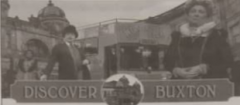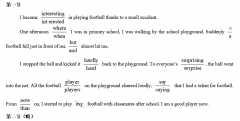2016江苏百校联考第一次联考英语试题及答案(5)
It seems that the rising wealthy class in Asia is not satisfied with international branches in their own countries. They want to send their kids to the original British boarding schools to be surrounded by English people and immersed in the British culture. To support their children studying in the UK, Chinese parents are buying houses in Britain. According to a survey by UK Property Weekly, houses near universities and outstanding primary and secondary schools are the most preferable location for Chinese buyers.
Compared to the independent school system, universities are more open. It is reported that China remains the leading source of international students for London.
61. Which of the following can we know from Barnaby Lenon’s words?
A. He was surprised at the present current trend.
B. English universities are better than those in China.
C. The English education system is welcomed by the Chinese.
D. There will be fewer investors in private education.
62. Which of the following is NOT among the attractions of the British schools?
A. The small size of classes.
B. The entry to world-famous universities.
C. Good exam results.
D. Good living conditions.
63. The underlined word “ undermine” in paragraph 3 is closest in meaning to “______”.
A. weaken B. strengthen C. follow D. overcome
64. Chinese parents are buying houses in order to ______.
A. invest more money
B. support their children’s education
C. show off their ability
D. compete with other parents
D
For eighty four days old Santiago had not caught a single fish. At first a young boy, Manolin, had shared his bad fortune, but after the fortieth luckless day the boy's father told his son to go in another boat. From that time on, Santiago worked alone. The boy loved the old fisherman and always helped him with money and food. Usually, they would talk about the fish they had taken in luckier times or about American baseball after supper, while at night, alone in his cottage, Santiago dreamed of lions on the beaches of Africa, where he had gone on a sailing ship years before. He no longer dreamed of his dead wife.
On the eighty-fifth day, Santiago set off to fish before dawn. Two of his baits (饵) were fresh tunas (金枪鱼) the boy had given him. Then he set his lines which went straight down into deep dark water.
As the sun rose he saw other boats in toward shore. A man of war bird showed him where dolphin were chasing
some flying fish. This time Santiago saw tuna jumping in the sunlight. A small one took the hook on his line. Pulling the fish aboard, the old man thought it a good fortune.
Toward noon a marlin, a common fish in the sea, started eating the bait which was one hundred meters down. Gently the old man played the fish, a big one, as he knew from the weight on the line. At last he struck to settle the hook. The fish did not come out of the surface. Instead, it began to pull the boat to the northwest. The old man followed it. Although he was alone and no longer strong, he had his skill and knew many tricks. He waited patiently for the fish to be tired .
It became cold after the sunset. Suddenly the marlin leaned, pulling Santiago forward on his face and cutting his cheek. By dawn his left hand was cramped (抽筋的). The fish had headed northward; there was no land in sight. Hungry, he cut pieces from the tuna and chewed them slowly. That morning the fish jumped. Seeing it leap, Santiago knew he had hooked the biggest marlin he had ever seen. Then the fish went down and turned toward the east. Santiago drank a little water from the bottle during the hot afternoon. Close to nightfall a dolphin took the small hook he had baited. He lifted it aboard, careful. After he had rested, he cut meat from the dolphin and kept also the two flying fish he found in its stomach. That night he slept. He awoke to feel the line running through his fingers as the fish jumped. Making the line loose slowly, he tried to tire the marlin. After the fish slowed its run, he washed his cut hands in sea water and ate one of the flying fish. At sunrise the marlin began to circle. Faint and dizzy, he worked to bring the big fish nearer with each turn. Almost exhausted, he finally drew his big fish alongside and drove in the harpoon (鱼叉). The fish was two feet longer than the boat. No fish like it had ever been seen in Havana harbor. An hour later, he sighted the first shark, a fierce Mako, and it came in fast to chase after the dead marlin. The old man struck the shark with his harpoon. The Mako rolled and sank, carrying the harpoon with it and leaving the marlin bloody. He knew the smell would spread. Watching, he saw two sharks closing in. He struck at one with his knife and watched it sliding down into deep water. He killed the other while it tore at the flesh of the marlin. When the third appeared, he thrust (刺) it with the knife. The other sharks came at sunset. At first he tried to beat them with the tiller (舵柄) from the boat, but his hands were bleeding and there were too many in the sea. In the darkness, as he steered (掌舵)toward the harbor of Havana, he heard them hitting the boat again and again. But the old man thought only of his steering and his great tiredness. He had gone out too far and the sharks had beaten him. He knew they would leave him nothing but the stripped skeleton of the big marlin.
All lights were out when he sailed into the little harbor and beached his boat. He could just make out the white backbone and the upstanding tail of the fish. Once he fell under their weight and lay patiently until he could gather his strength to go on. In his cottage he fell on his bed and went to sleep.
65. The above story is most likely to be adapted from __________.
A. The Adventures Of Tom Sawyer B. The Old Man And The Sea





